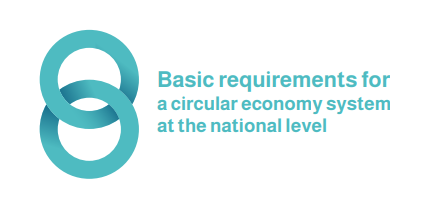الحوار الوطني على مستوى القطاع لدراسة المتطلبات الأساسية لنظام الاقتصاد الدائري على المستوى الوطني.
The circular economy represents a transformative approach to industrial development, prioritizing resource efficiency, waste reduction, and the creation of sustainable, closed-loop systems. In Jordan, the industrial sector is a cornerstone of the national economy, but it faces pressing challenges such as resource scarcity, inefficient waste management practices, and growing environmental pressures. Adopting circular economy principles offers a pathway to address these challenges while unlocking economic opportunities, improving competitiveness, and fostering long-term sustainability.

Methodology
The project employed a multi-faceted methodology to gather data, engage stakeholders, and develop actionable recommendations. Key steps included: Data Collection: A combination of surveys and structured stakeholder consultations was used to assess the current state of circular economy practices across target sectors . Stakeholder Mapping and Analysis: Stakeholders were categorized by their roles in the industrial ecosystem, including manufacturers, recyclers, policymakers, and researchers. Key Criteria for Analysis: Data was analyzed based on several criteria, including resource efficiency, waste generation patterns, operational challenges, and policy gaps. Sector
- Objectives

Raising Awareness:
Educating stakeholders about the benefits, practices, and global trends associated with circular economy models

Identifying Opportunities:
Mapping sector-specific opportunities for implementing circular economy principles.

Facilitating Collaboration:
Creating platforms and initiatives to foster partnerships among industrial players, policymakers, and other stakeholders.

Developing Tools and Solutions:
Providing practical resources, frameworks, and actionable recommendations to support the transition
© all rights reserved
jordan Economic Forum - 2024


